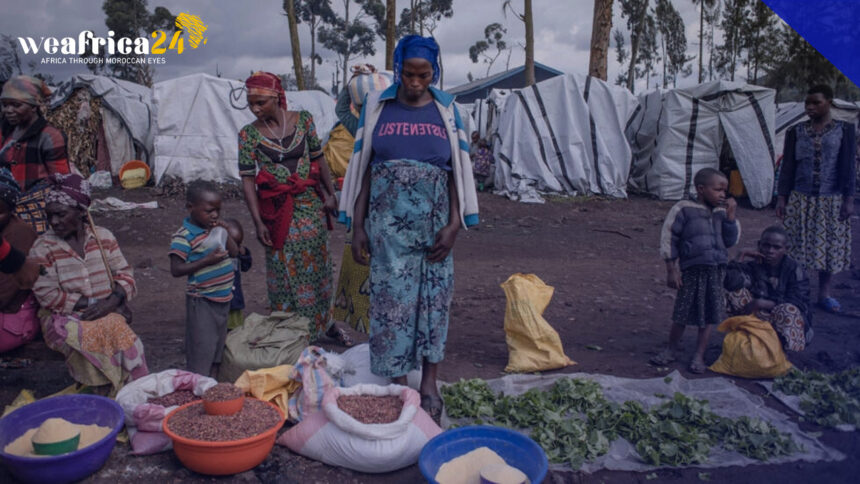In a joint effort, the World Food Programme (WFP) and the Food and Agriculture Organization (FAO) presented staggering new statistics in Kinshasa on Tuesday, shedding light on the profound food insecurity crisis unfolding in the Democratic Republic of Congo (DRC).
This year, approximately 40 million individuals, constituting 40% of the Congolese population, are grappling with moderate to severe levels of food insecurity. This alarming revelation underscores the urgent need for action, emphasized the United Nations agencies.
According to the figures unveiled on Tuesday, March 5th, by the WFP and FAO in Kinshasa, among those requiring the most immediate intervention, approximately 16 million Congolese find themselves in a state of severe chronic food insecurity.
The analysis, spanning 90 urban centers, reveals a bleak picture, with only the province-city of Kinshasa managing to evade the alarming trend, classified under “mild food insecurity.” Nearly 12 million individuals, accounting for 85% of its population, are affected.
The report squarely attributes persistent conflicts and armed violence, particularly in the eastern regions of the country, as significant contributors to this food crisis. Additionally, diseases such as human and animal epidemics, along with crop invasions, further exacerbate the situation.
The multifaceted crises disrupt food systems, wreaking havoc on agricultural production and livelihoods. Furthermore, the combination of low agricultural output and currency depreciation against the US dollar compounds the plummeting purchasing power of Congolese households, within a backdrop of widespread poverty.
On February 20th, the UN, the Congolese government, and the humanitarian community jointly issued a call to mobilize $2.6 billion to fund the humanitarian response plan for 2024.
This grim reality underscores the pressing need for concerted efforts to alleviate the suffering of millions afflicted by food insecurity in the DRC. Urgent action is imperative to address the root causes and provide vital assistance to those most in need, to prevent further escalation of this crisis.







